Driving is one of the most exhilarating feelings, but that can be all lost and turned into panic when pulled over by the police. The New York Traffic Violation Guide was created by Jamestown traffic ticket attorney Scott Humble to help residents manage their traffic tickets.
 All New Yorkers know that traffic violations are often a part of life. We may strive to follow all precautions while behind the wheel, but when we make mistakes, the law is there to hold us accountable. This does not mean, though, that every punishment is warranted. Though the vast majority of drivers do their best to respect the rules of the road, when minor traffic violations do in fact occur, the fines and penalties can sometimes seem excessive. It is in situations such as this that the driver has the right to fight any charges.
All New Yorkers know that traffic violations are often a part of life. We may strive to follow all precautions while behind the wheel, but when we make mistakes, the law is there to hold us accountable. This does not mean, though, that every punishment is warranted. Though the vast majority of drivers do their best to respect the rules of the road, when minor traffic violations do in fact occur, the fines and penalties can sometimes seem excessive. It is in situations such as this that the driver has the right to fight any charges.
Traffic violations can happen due to a variety of factors. Certain intersections or roadways may not be designed in ways that are accessible to all drivers and vehicles. The presence of construction work can spur sudden changes in speed limits and the shapes of lanes. An officer may be prompted to issue a ticket for any of the above reasons, placing the blame on the driver rather than on external factors. But no driver should lose hope after receiving a ticket; representation in court from a traffic violation attorney can be instrumental in fighting and potentially dismissing any and all unwarranted charges.
Download Our FREE Traffic Violation Guide
Traffic Violations in New York State
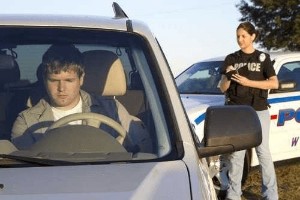 The state of New York, from Brooklyn to Binghamton to Buffalo, counts an abundance of major and minor actions as traffic violations. It should come as no surprise that speeding is an all too popular form of traffic violation, with the penalties increasing according to how fast a vehicle was traveling above a posted speed limit.
The state of New York, from Brooklyn to Binghamton to Buffalo, counts an abundance of major and minor actions as traffic violations. It should come as no surprise that speeding is an all too popular form of traffic violation, with the penalties increasing according to how fast a vehicle was traveling above a posted speed limit.
Use of a mobile device is another widespread violation; as New York is a “hands-free state,” sending text messages or talking on a handheld cell phone while behind the wheel are prime examples of unsafe choices. Other common traffic violations according to New York law include driving or changing lanes recklessly, tailgating, failing to restrain a child passenger, refusing to yield to a pedestrian or another vehicle, and running a red light. It is important to note that driving while intoxicated or while ability impaired is a crime, not a violation, and a different set of laws control cases such as these.
Some traffic violations result in the receipt of points on a driver’s license, and these points often lead to a wealth of negative consequences. The number of points depends on the type of traffic violation; for example, New York State will not assign points for improper parking, but failure to stop for a school bus will result in five points, and driving 31 to 40 miles per hour above a speed limit leads to eight points. New York drivers who regularly cross state lines will not have to worry about receiving points for traffic violations committed in Connecticut, Massachusetts, New Jersey, Pennsylvania, or Vermont. However, because of a shared agreement with two Canadian provincial governments, drivers with New York licenses are still eligible to accrue points for violations that occur in Ontario or Quebec.
Having points on one’s license can lead to increases in insurance premiums, though any price increase will vary by insurance company. Drivers are obliged to pay a Driver Responsibility Assessment fee if they accrue six or more points on their licenses within a period of 18 months, and this fee can be upwards of $100 each year. According to New York law, 11 points on a license within an 18-month period can result in suspension of driving privileges.
How to Respond to a Ticket for a Traffic Violation
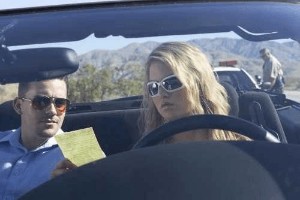 The easiest way to deal with a ticket is to pay the fine and accept the penalties. However, this option may not be right for a driver under certain circumstances. Because each of New York’s cities, towns, and villages has its own ordinances regarding traffic violations, a parking ticket in one area may impose a significantly higher fine than a ticket from another part of the state would bear.
The easiest way to deal with a ticket is to pay the fine and accept the penalties. However, this option may not be right for a driver under certain circumstances. Because each of New York’s cities, towns, and villages has its own ordinances regarding traffic violations, a parking ticket in one area may impose a significantly higher fine than a ticket from another part of the state would bear.
It is simply not feasible for every driver to pay lofty fines, and especially when a driver is in fact innocent of the traffic violation, it can make more sense to fight a ticket than to pay it.
If you have been charged with a traffic violation in the state of New York, fighting the ticket involves pleading “not guilty” in a court of law. Because the protocol for fighting traffic violation tickets varies by municipality, you should speak with a local attorney as soon as possible to ensure that you are responding appropriately.
You may represent yourself during the hearing, but seeking representation from a traffic violation attorney will be instrumental in helping you to get your charge dismissed. Be sure to show up for your court date, or a warrant may be issued for your arrest.
Other than potential attorney or court fees, you will likely not be responsible for paying any penalty if you are found innocent. If you are found guilty, however, there are several potential consequences. Your license may be suspended, and you may accrue extra points. You may be responsible for paying your fines in full on the same day that you are convicted, and your sentence can include community service or even jail time. Your traffic violation attorney can help you to appeal a guilty verdict, the notice for which you must file within 30 days of your conviction.
Almost every driver has at least one story about a traffic violation ticket that seemed unfair. Getting caught in a speed trap at the bottom of a hill, receiving a ticket for allegedly parking just a few inches too close to a fire hydrant, and not noticing a hidden stop sign are among the most common complaints. Nevertheless, because the violation in each of these cases is minor and caused by circumstances beyond the driver’s control, the driver has the right to fight the ticket.
Our Jamestown traffic ticket attorneys are well versed in the ins and outs of traffic violation cases, and we would be glad to advocate on your behalf in court. With the help of one of our attorneys, you will be able to build a strong case, and we will work tirelessly to get your ticket dismissed.
Frequently Asked Questions | New York Traffic Violation Guide
Why Should I Hire an Attorney for a Traffic Violation?
I had a telephone call from a client that had a traffic violation in New York State, and they were asking whether it is a good idea to hire an attorney to resolve their traffic issue. In this case, it was a pretty large speeding ticket. My answer is that it’s much better to have an attorney represent you for several different reasons.
First, you’re too busy to go and deal with this. There’s multiple appearances in court, usually at night, they’re not very convenient, and there can be several different court appearances. Additionally, you want to obtain the absolute best result possible and frankly, you’re not going to be able to do that without an experienced traffic court attorney. There are consequences here. On the first level, you’ve got the traffic violation itself and what you’re going to have to pay the court on that. Certainly, my goal is to get the least fine possible.
I think most importantly, you are going to have to worry about points on your license. You have to be careful of that. Most people know that if they have 11 points, they’re going to lose their license, but actually, after nine it is possible for the Department of Motor Vehicles to pull your license. There are some additional exceptions. Maybe you only have three speeding tickets but not 11 points. Three speeds alone, and they can pull your license. The tickets are very important when dealing with your license. Not to mention, your insurance. Usually, after you get five points on your license, your insurance company is going to at least increase your premium.
Download Our FREE Traffic Violation Guide
What Are the Points for Speeding?
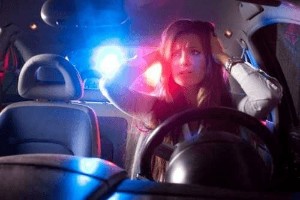 Points are important, not only for New York State in keeping your license, but also for insurance purposes; you want to stay under five.
Points are important, not only for New York State in keeping your license, but also for insurance purposes; you want to stay under five.
Your speed directly relates to how many points you get on your license:
- 1-10 miles over is 3 points
- 11-20 miles over is 4 points
- 21-30 miles over is 6 points
- 31-40 miles over is 8 points
- Over 40 miles is 11 points
You lose your license at 11 points. You definitely do not want to plead to that charge. You want to contact an attorney that does traffic court and have them represent you. Don’t sign anything and send it in to the court. You want your attorney to do that for you.
Additionally, on speeding tickets, there are extra procedures that people don’t know about. There are certain requests that I make on behalf of clients. If those requests are not timely received, then I can go and get your ticket dismissed. There’s also something about having those in before a trial as well. A lot of these cases, if I don’t get the plea bargain that I want on behalf of my client, I will go and ask for a trial.
We can go and negotiate these. If it’s not too high, the first time, I really try to go for something other than speed, whatever the case may be. Sometimes I can get something with no points. Sometimes we have to take something with points, but definitely it’s going to be lower points than the speed.
What Should I Do About a Cell Phone Ticket?
The law in the last few years has evolved. Of course, we all know that you shouldn’t be calling on your telephone; they’re certainly going to pull you over for that. Texting is a huge deal now; it’s just crazy the number of problems that municipalities and police are having with texting because accidents and hit-and-runs are up, they believe, because of texting.
I don’t think a lot of people know that the governor has actually given a directive to the State Police that, even larger than the seat belt law, is the texting violation or using the cell phone.
Recently, there was a law change. They used to have to prove that you were talking or texting, but that is no longer the case. If you read the updated law, it is simply use that can get you pulled over. If you use your cell phone for anything, you are in violation.
What Happens If I Get Caught Driving Without a License?
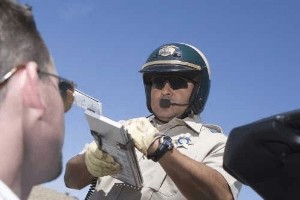 We had a client come in the other day, and he was charged with aggravated unlicensed operation of a motor vehicle. He had lost his driving privileges previously; he did not resolve the issue, so his privileges were suspended by scofflaw, and then he got another stop.
We had a client come in the other day, and he was charged with aggravated unlicensed operation of a motor vehicle. He had lost his driving privileges previously; he did not resolve the issue, so his privileges were suspended by scofflaw, and then he got another stop.
The officer charged him with aggravated unlicensed, so not only do we have to take care of the first problem, but we have to take care of the second problem as well. As you can imagine, it’s much more difficult to do so.
That’s not to say that we don’t take care of it – we certainly do – but when we are negotiating, it’s more difficult to negotiate with an aggravated unlicensed. Of course, my goal is to minimize your fine and get you back on the road with your privileges, because you have to have the license to do your job and take care of your family.
Can I Get My Impounded Vehicle Back?
I was talking with a client the other day and it was kind of an extreme situation. He was going so fast that he was arrested, and they literally impounded his vehicle. This particular case, it was the State Police, so it was impounded and delivered to their premises, whereas in a city, they usually have some type of fenced in area just for these vehicles. In any event, we needed to go and get that vehicle back.
We went through the whole process, as far as filing an appearance in court and going to court, so that they had jurisdiction over this case, and once we were able to do that, I was easily able to go to the State Police and get that vehicle released so my client could use it for his family and for work.
Can I Get Lapse Insurance Ticket?
I had a client come in and he had let his insurance lapse, and that is just something you do not want to do nowadays. Years and years ago, it was not that big of a deal, but nowadays especially New York State really keeps an eye on those. Not only are you dealing with the local court, as far as the ticket, but the bigger problem is New York State Division of Insurance. What you’re doing is receiving a penalty every day that you don’t have insurance. Not only is that a problem, but your insurance company, if you want to renew, is going to have a problem with the situation as well.
Do You Represent Out of State Drivers?
 We had a client come in the other day and he had received a speeding ticket in Chautauqua County, but he’s not a resident. In fact, he’s not a resident of New York. He wanted to know if there was a downside of not resolving this issue in New York. The answer is absolutely yes. It used to be, 30 years ago, that there was only reciprocity between certain states, but now all 50 states have reciprocity. If you don’t take care of a ticket in one state, they’re going to go and come back to your state, and you’re not going to have driving privileges.
We had a client come in the other day and he had received a speeding ticket in Chautauqua County, but he’s not a resident. In fact, he’s not a resident of New York. He wanted to know if there was a downside of not resolving this issue in New York. The answer is absolutely yes. It used to be, 30 years ago, that there was only reciprocity between certain states, but now all 50 states have reciprocity. If you don’t take care of a ticket in one state, they’re going to go and come back to your state, and you’re not going to have driving privileges.
What I mean by that is no one’s going to come to your house and take your license. They’re not going to go and call you up or send you a letter saying give me your license. You’re still going to physically have your license, but if you get stopped and they run your license, it’ll say that you don’t have privileges to be able to drive, and then they’re going to give you a ticket for that as well.
You certainly want to go and take care of a situation like this ticket, no matter where it is, immediately. The same is for New York. Obviously, if you don’t go and take care of any ticket in New York or Pennsylvania, wherever the case may be, you’re not going to have the privileges. In New York, we call it a scofflaw for some reason. If the judge goes and scofflaws your license, you don’t have privileges and you’re not allowed to drive.
What Happens if I’m Charged for Driving Without a License?
I had an interesting situation with a client where he did not have a license to drive. He was pulled over, arrested for that, and he wanted me to go and represent him and resolve that issue. I was discussing with him what we can do because it’s extremely serious to drive without a license.
It’s one thing to go and resolve it in the court system with a fine and all that which we certainly can do, but as far as getting his license in the future, that is where the problem lies, because the Department of Motor Vehicles does not take very kindly at driving without a license. What we did is we went and resolved it, or made an agreement with the Department of Motor Vehicles, but he did have to wait 18 months before he could go and take his exam.
Download Our FREE Traffic Violation Guide
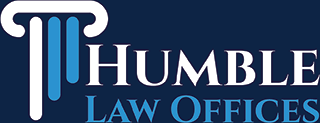
Ueqfra https://newfasttadalafil.com/ – Cialis Obergl Perkog Cialis https://newfasttadalafil.com/ – buy cialis online canadian pharmacy Vdtzja
Stendra Purchase Next Day Delivery buy cialis online canadian pharmacy le cialis plus fort que le viagra